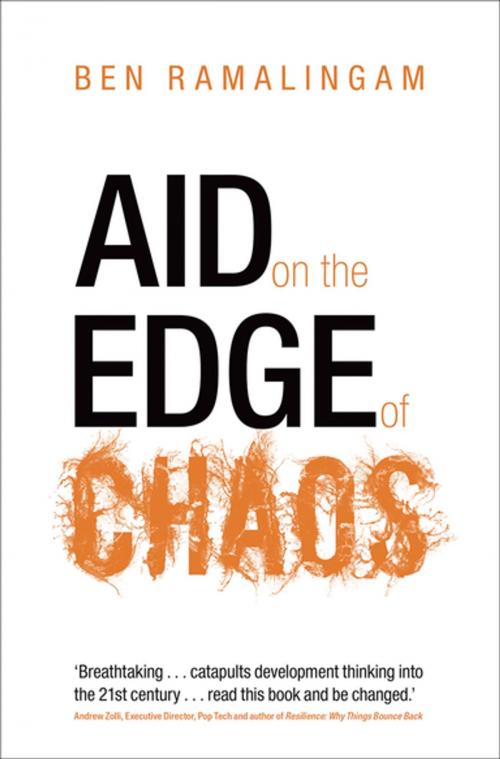Aid on the Edge of Chaos
Rethinking International Cooperation in a Complex World
Business & Finance, Economics, Economic Development, Nonfiction, Social & Cultural Studies, Political Science| Author: | Ben Ramalingam | ISBN: | 9780191503443 |
| Publisher: | OUP Oxford | Publication: | October 24, 2013 |
| Imprint: | OUP Oxford | Language: | English |
| Author: | Ben Ramalingam |
| ISBN: | 9780191503443 |
| Publisher: | OUP Oxford |
| Publication: | October 24, 2013 |
| Imprint: | OUP Oxford |
| Language: | English |
Many agree that the foreign aid system - which today involves virtually every nation on earth - needs drastic change. But there is much conflict as to what should be done. In Aid on the Edge of Chaos, Ben Ramalingam argues that what is most needed is the creative and innovative transformation of how aid works. Foreign aid today is dominated by linear, mechanistic ideas that emerged from early twentieth century industry, and are ill-suited to the world we face today. The problems and systems aid agencies deal with on a daily basis have more in common with ecosystems than machines: they are interconnected, diverse, and dynamic; they cannot be just simply re-engineered or fixed. Outside of aid, social scientists, economists, business leaders, and policy makers have started applying innovative and scientific approaches to such problems, informed by ideas from the 'new science' of complex adaptive systems. Inspired by these efforts, aid practitioners and researchers have started experimenting with such approaches in their own work. This book showcases the experiences, insights, and often remarkable results of innovative thinkers and practitioners who are working to bring these approaches into the mainstream of aid. From transforming child malnutrition to rethinking economic growth, from building peace to reversing desertification, from rural Vietnam to urban Kenya, the ideas of complex systems thinking are starting to be used to make foreign aid more relevant, more appropriate, and more catalytic. Aid on the Edge of Chaos argues that such ideas and approaches should play a vital part of the transformation of aid. Aid should move from being an imperfect post-World War II global resource transfer system, to a new form of global cooperation that is truly fit for the twenty-first century.
Many agree that the foreign aid system - which today involves virtually every nation on earth - needs drastic change. But there is much conflict as to what should be done. In Aid on the Edge of Chaos, Ben Ramalingam argues that what is most needed is the creative and innovative transformation of how aid works. Foreign aid today is dominated by linear, mechanistic ideas that emerged from early twentieth century industry, and are ill-suited to the world we face today. The problems and systems aid agencies deal with on a daily basis have more in common with ecosystems than machines: they are interconnected, diverse, and dynamic; they cannot be just simply re-engineered or fixed. Outside of aid, social scientists, economists, business leaders, and policy makers have started applying innovative and scientific approaches to such problems, informed by ideas from the 'new science' of complex adaptive systems. Inspired by these efforts, aid practitioners and researchers have started experimenting with such approaches in their own work. This book showcases the experiences, insights, and often remarkable results of innovative thinkers and practitioners who are working to bring these approaches into the mainstream of aid. From transforming child malnutrition to rethinking economic growth, from building peace to reversing desertification, from rural Vietnam to urban Kenya, the ideas of complex systems thinking are starting to be used to make foreign aid more relevant, more appropriate, and more catalytic. Aid on the Edge of Chaos argues that such ideas and approaches should play a vital part of the transformation of aid. Aid should move from being an imperfect post-World War II global resource transfer system, to a new form of global cooperation that is truly fit for the twenty-first century.















